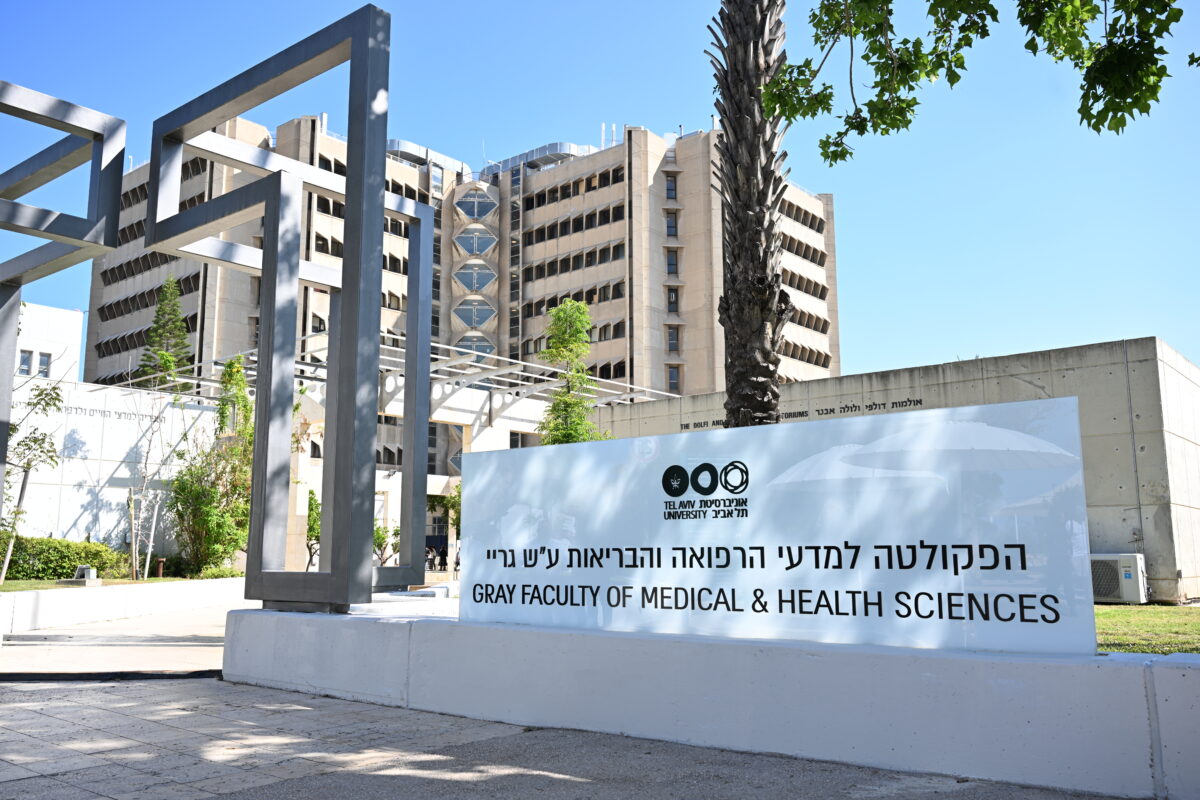Cancer is the second-most common cause of death in the United States. Every year, about 2 million Americans are diagnosed with some form of the disease. Doctors do what they can with the treatment options they have, but still, about 600,000 patients die. Meanwhile, patients who lack good insurance can’t access all available treatment options, because money.
Speaking of money, as if having a serious disease isn’t bad enough, the whole cancer treatment journey — even for those with good insurance — can annihilate a lifetime of savings in a matter of months.
But there is a ready trove of thousands of potentially effective and affordable cancer treatments within reach: Familiar medicines long used to treat diseases other than cancer, now available as generics, but which have already shown anticancer promise. And several funders with interests in both healthcare and equity are backing an innovative, artificial-intelligence-based approach to turn these older generics into new cancer treatments.
Arnold Ventures, Draper Richards Kaplan Foundation, Lyda Hill Philanthropies and Amazon Web Services’ IMAGINE Grant Program are among the funders that have invested $1 million in Boston-area nonprofit startup Reboot Rx. Launched in 2020, the company aims to fast-track generic drugs for use as cancer treatments. Reboot Rx is working across the spectrum of the task: first identifying generics that might fight cancer, organizing funding and research partnerships to generate definitive clinical evidence that the drugs work, and finally, helping create the policies that would let doctors readily prescribe them.
Laura Kleiman, founder and CEO of Reboot Rx, is a cancer researcher by training, most recently at Dana Farber Cancer Institute. She launched Reboot Rx after a personal experience with cancer, when her mother was diagnosed with multiple myeloma. Seeking additional treatment options for her mother’s difficult illness, Kleiman turned up numerous studies of drugs originally developed to treat other diseases that showed effectiveness in fighting cancers.
“I thought, this is the lowest-hanging fruit to get new, affordable, safe treatments to patients faster,” she said. “And then I very quickly got upset to learn that nobody cared. Nobody was pushing these drugs forward because of a market failure, because pharma companies can’t make money by developing new uses for low-cost generic drugs.”
Artificial intelligence to identify real medicine
Kleiman quit her job and founded Reboot Rx in 2020 to advance these old-yet-new potential medicines. Reboot Rx is focusing first on the search for drugs to treat prostate cancer, which accounts for about 290,000 new cases and 35,000 deaths each year in the U.S. But the generics Reboot Rx was after weren’t exactly hiding in plain sight — they were hiding in the dense pages of some 600,000 published scientific journal articles.
To have scientists analyze all these articles would take years, so Kleiman developed an AI-powered natural language processing system and trained it on the hundreds of thousands of articles. The system uses the same family of AI technology we’ve been hearing about so much lately in the form of ChatGPT and Microsoft’s new AI-powered Bing search engine. Ultimately, the system narrowed 600,000 studies down to 16,000 that might be relevant.
Tapping into a new and potentially huge source of low-cost, effective cancer treatments fit smoothly into the funding strategy of backer Arnold Ventures, according to Mark Miller, Arnold’s executive vice president of healthcare. Arnold Ventures’ health policy portfolio is focused on affordability, which it pursues by focusing on hospital prices, research, Medicare reform and federal and state policy — as well as drug costs.
“With respect to drugs,” Miller said, “we think very comprehensively in terms of the patenting process, how the middle markets work, pharmacy benefit managers, coverage, payment — and also of disruptors.” Arnold’s backing for Reboot Rx complements its support for another nonprofit generic drug startup, Civica Rx, which works to address chronic shortages of antibiotics and other drugs.
The business of drug research and development is essentially at odds with society’s need for effective, affordable treatments, Miller said. Pharmaceutical companies say it costs hundreds of millions to billions of dollars to advance a new drug from bench to bedside, and while some observers suspect companies may be inflating those estimates, there’s no question it is hugely expensive. Once a unique new drug is developed and approved for use by the FDA, the company holding the patent can, in effect, charge whatever it wants for it. (Many countries have laws that control drug prices; the same medicine that’s prohibitively expensive in the U.S. may be quite affordable elsewhere in the world.)
The pharma industry argues that high drug prices are necessary to recoup research and development costs and to continue driving advances in care. “We have a very revenue-driven pharmaceutical development model, which is effective for certain kinds of drugs,” Miller said. “But I also think that there may be other ways to bring drugs to market,” he said, citing the effective collaboration between the government and manufacturers to develop COVID vaccines and drugs, among other public-private measures. Repurposing generics under the Reboot Rx model could be another important pipeline.
Pharmaceutical companies can make much less money selling low-priced generic drugs than developing and marketing new ones, so they have little incentive to expend the money and effort needed for the additional research and other work to repurpose treatments. The end result is the current state of cancer care: Available treatments tend to be very expensive. As a result, patients and families with the least financial resources are more likely to be cruelly forced into debt to pay for treatment or to be even more cruelly shut out of treatment options altogether.
Repurposing generics for cancer or other diseases presents several advantages beyond cost alone. For one, doctors have a much better idea about the safety and side effects of a drug that has been out in the field for years or decades. Unfortunately, it’s far from rare to see an exciting, newly approved drug perform well in clinical studies, only to reveal its true risks after wider use. And in the case of many cancers, which often resist available treatments, any new drug could be a lifesaving tool for doctors and patients. It is quite possible that a repurposed generic drug could be as effective — or more so — compared to a pricey new one.
Solving for inequity
For the Draper Richards Kaplan Foundation, Reboot Rx’s mission aligned with core interests. “DRK’s entire mission is solving for inequity,” said Jim Bildner, CEO of DRK. “But it’s hard to find a place where inequity is more pronounced than for folks who are facing serious illnesses.”
DRK has long been interested in the problem of medical debt in America — an estimated $140 billion affecting millions of people. Unsurprisingly, the debt is concentrated in poor communities and among people of color, leading to bankruptcies or onerous long-term payment plans. And the problem is probably worse than you thought: A study published in 2018 in the American Journal of Medicine found that an astounding 42% of people diagnosed with cancer depleted their life assets within just two years after their diagnosis.
DRK has been backing solutions to medical debt. Among its portfolio of ventures is a company called Dollar For, which seeks to ease medical costs by helping patients leverage a section of the Affordable Care Act that requires nonprofit hospitals to provide free care for people near the federal poverty line — something that the hospitals don’t always make easily available to patients. “I’ve spent so much time looking at this space and talking to patients or family members who have to sell their home and do other extraordinary measures to pay these bills,” Bildner said.
Reboot Rx appealed to DRK for the same reason as Dollar For — it operates within extant systems of regulation and law. “These generic drugs exist. They’ve been approved. So they’re another opportunity for treatment,” Bildner said. “Anytime we can find an organization working with the existing infrastructure, as imperfect as it might be, and can tweak it, it’s going to make a difference.”
According to Kleiman, Reboot Rx is now seeking additional funding to locate treatment options for multiple types of cancer in parallel with its work in prostate cancer.
Drug prices, which affect virtually everybody, have been a central element of the public health debate for decades. If generics turn out to be effective in cancer treatment, philanthropic investment in this space could go a long way for patients and their families, both in terms of their physical and their financial wellbeing.
Credit:Source link



